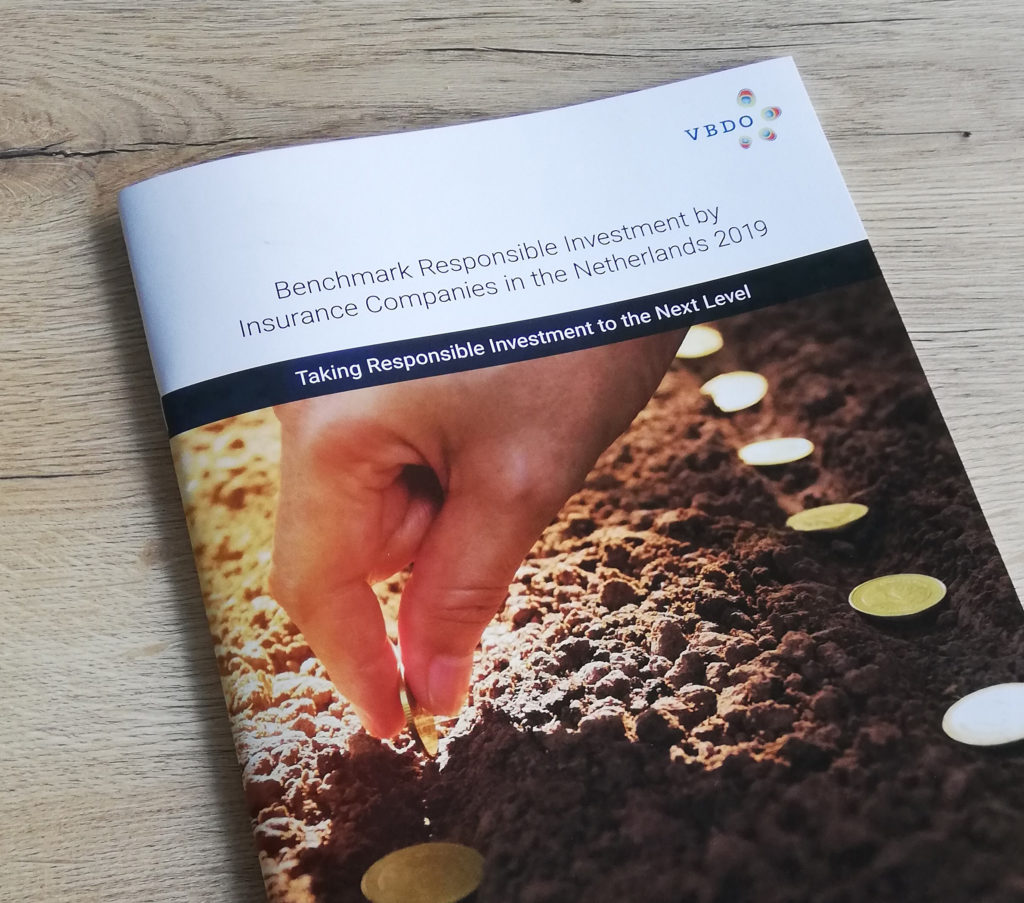“Making Up Your Own Mind”
A few years ago, sustainable and responsible investment was a hobby for some employees in the investment field, but nowadays this has changed. Responsible investment is mainstream and receives attention on all levels at every insurance company. This is partly as a result of external pressure by NGOs, benchmarks, and national and European watchdogs. However, it’s mainly because many insurers feel a great responsibility to use the money they manage on behalf of their policyholders well.
Stimulating insurance companies to invest responsibly:
the starting point was marked by us in 2012 with the Code for Responsible Investment. This code was updated in the summer of 2018, when the IMVO Covenant for Insurance Companies was signed by the Dutch Association of Insurers. The covenant specifies agreements regarding the investment policy of insurance companies. In this, we’ve chosen not to focus on one specific theme, but have set-up agreements covering the whole investment process, including a proper risk assessment (due diligence) followed by measures to implement change, and of course, transparency on any action taken.
The covenant provides ample space for the individual beliefs of the insurance companies. Doing ‘right’ is, after all, not a rigid concept, and provides room for different interpretations. For instance, this is reflected in discussions about investments in weapons – are all weapons bad? If not, does it matter who the weapons are supplied to? More and more insurance companies think about these types of questions and adjust their policies accordingly. Discussion also exists on the methodology. Where some insurance companies choose to exclude all investments in particular categories, others are convinced shared ownership exerts influence by initiating dialogue through engagement and strategic voting at shareholder meetings.
Within the Dutch Association of Insurers, and in the IMVO Covenant, this discussion is facilitated by providing feedback to one another on the implemented policies. Here, transparency is the key word. Some companies with well-thought-out and responsible investment policies do not report on their practices. This is a missed opportunity and insurers should show what they’re doing. Not only for themselves, but also for NGOs, politics, and mostly, for policyholders and the society itself. Policyholders are also gaining interest in the use of their premium and want to feel good about the choices of their insurer. In the autumn of 2019, I expect the first results of the IMVO Covenant after its implementation one year ago and my expectations are high.
Another important development is the commitment of the financial sector to the national climate agreement. We signed this agreement together with the entire financial sector on the 10th July 2019. This marks an important step, as climate change has a substantial impact on the policies carried out by insurance companies through the increased frequency of extreme weather events, and the associated financial risks. Commitment to the climate agreement also signifies that financial resources will become available to spur the energy transition. In addition, we’re developing improved measurement tools to calculate the carbon footprint of investment portfolios, and will help to set targets for decarbonisation. How financial institutions will implement these tools and targets is up to them. But there is room for various instruments, among them exclusion, engagement, and voting policies.
I think giving insurance companies enough space to develop their personal responsible investment policy is of great importance. This way, companies consider their choices and actions, and are more attentive to the results. This VBDO benchmark helps in this regard. I know for a fact that the insurance companies with a 0.0 score in the previous benchmark have woken up, and discussed the ESG policy on board level. My expectation is the 2019 benchmark will have the same effect.
Richard Weurding
CEO, Dutch Association of Insurers

